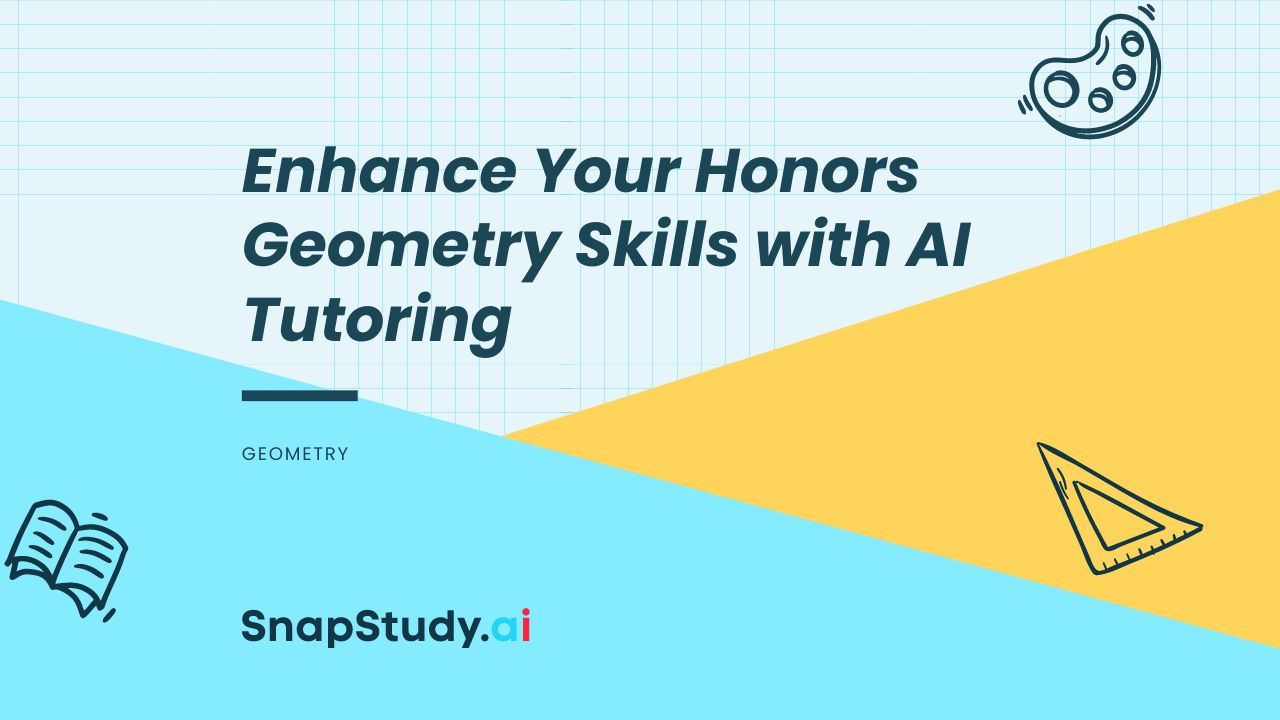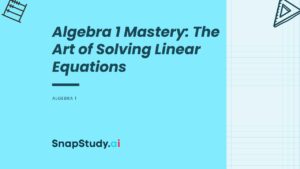Understanding the Challenge of Honors Geometry
Honors Geometry, a high school level mathematics course, is a challenging yet rewarding subject that often requires students to engage with a variety of complex concepts and problems. The course typically covers a wide range of topics, including but not limited to geometric proofs, triangles, circles, polygons, coordinate geometry, and three-dimensional geometry.
The core of Honors Geometry focuses on the study of shapes, sizes, patterns, and properties of space. Students dive deep into the world of lines, angles, surfaces, and solids, exploring their characteristics, relationships, and measurements. These topics require not only a solid understanding of basic mathematical concepts but also the ability to think critically and logically. Students must develop a strong grasp on deductive reasoning and spatial visualization.
The Value of Honors Geometry
The inherent difficulty of Honors Geometry, however, is what makes it such a valuable course. It forces students to develop problem-solving skills and to think analytically. These are abilities that are not only crucial for higher-level mathematics and science courses but are also invaluable in many career paths.
Beyond the classroom, the skills learned in Honors Geometry can have real-world applications. For instance, architects and engineers use geometric principles in their designs. Computer scientists use geometry in graphics and simulations. Even professions like fashion design and art incorporate geometric concepts.
Overcoming the Struggles with Tutoring
Despite its importance, many students struggle with Honors Geometry. This struggle can often lead to a lack of confidence and a fear of mathematics, which can have long-term academic consequences. This is where tutoring can have a profound impact.
A good tutor can explain complex concepts in a way that makes them accessible and understandable. They can provide personalized instruction tailored to a student’s individual learning style. Through one-on-one sessions, tutors can help simplify complex geometry problems, making them less intimidating. They can also provide additional practice problems and exercises, allowing students to apply what they’ve learned and gain confidence in their abilities.
The Revolution of AI Tutoring
In today’s digital age, artificial intelligence (AI) is revolutionizing tutoring. AI tutors can provide personalized, one-on-one instruction that adapts to a student’s strengths and weaknesses. They can identify areas where a student is struggling and provide targeted instruction and practice problems to help them improve.
AI tutoring goes beyond traditional tutoring in its ability to adapt and personalize instruction. It uses algorithms to understand a student’s learning style and pace, personalizing the content accordingly. This helps to ensure that each student receives the most effective instruction for their specific needs.
Introducing SnapStudy.ai: Your AI Tutor
SnapStudy.ai‘s free AI tutoring app is a prime example of how AI can enhance a student’s understanding of Honors Geometry. The app provides personalized lessons and practice problems, helping students to understand complex concepts and to build their problem-solving skills.
With SnapStudy.ai, students can engage in interactive lessons on various geometry topics. The AI tutor can provide instant feedback, allowing students to correct mistakes and reinforce understanding immediately. This real-time feedback can be invaluable in helping students to quickly grasp and apply new concepts.
If you’re struggling with Honors Geometry, consider giving SnapStudy.ai a try. It could be the key to building a stronger comprehension of the subject and a more confident mathematical future.





